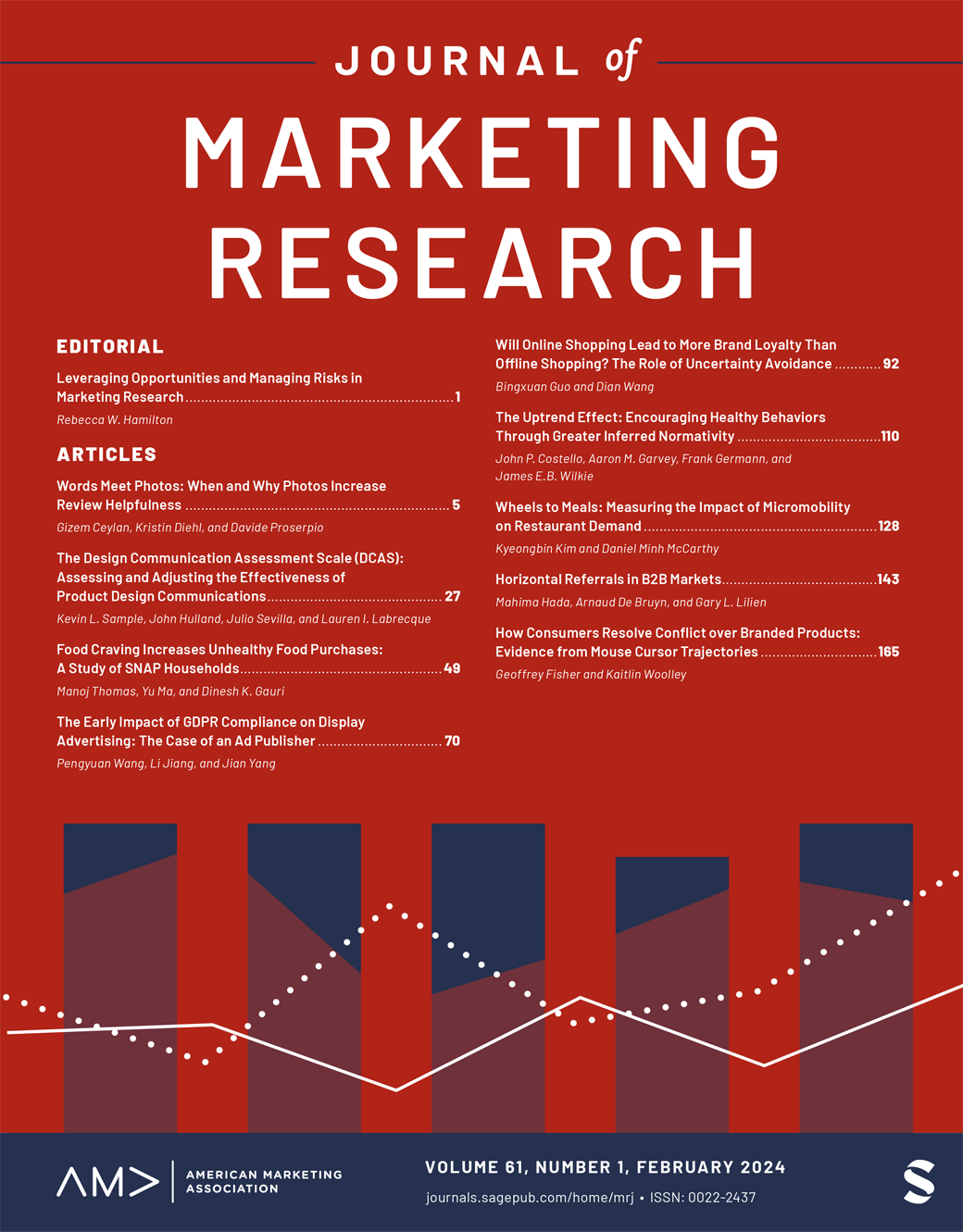EXPRESS:成功不是最终的;失败不是致命的:失败与成功信息如何导致对男性品牌的偏好
IF 5
1区 管理学
Q1 BUSINESS
引用次数: 0
摘要
营销人员通常使用将品牌与成功联系在一起的广告来进行有说服力的沟通。然而,这些广告可能不是推广品牌的最有效方式,尤其是男性品牌。目前的研究考察了失败信息何时以及为什么可以成为一种有效的宣传方法。在使用来自现场和实验室环境的观察和实验数据的八项研究中,作者证明,在成就情境中的失败经历,以及使用失败(与成功)信息的广告,在推广男性而非女性或中性品牌方面更有效。消费者敌意的增加会对这些影响起到中介作用。采用激进品牌暗示(如红色)的女性品牌也可以从失败信息中受益。此外,当人们对自己的失败承担责任(而不是不承担责任)时,失败信息的好处就会增强,而当失败归因于不稳定(稳定)的原因时,这种调节作用就会增强(减弱)。最后,男性选项的消费被发现有助于消费者从成就失败中恢复过来。本文章由计算机程序翻译,如有差异,请以英文原文为准。
EXPRESS: Success is Not Final; Failure is Not Fatal: How Failure Vs. Success Messaging Leads to Preference for Masculine Brands
Marketers commonly use ads that associate brands with success in persuasive communications. Yet, these ads may not be the most effective way to promote brands, particularly masculine brands. The current research examines when and why failure messaging can be an effective promotional approach. Across eight studies using both observational and experimental data from field and lab settings, the authors demonstrate that experiences of failure in achievement contexts, and ads that employ failure (vs. success) messaging, are more effective in promoting masculine but not feminine or neutral brands. An increase in consumers’ hostility mediates these effects. Feminine brands that employ aggressive branding cues (e.g., red color) can also benefit from failure messaging. Additionally, the benefits of failure messaging are enhanced when people do (vs. do not take) responsibility for their failures, and this moderating effect is intensified (weakened) when failures are attributed to unstable (stable) causes. Finally, the consumption of masculine options was found to assist consumers in recovering from achievement failures.
求助全文
通过发布文献求助,成功后即可免费获取论文全文。
去求助
来源期刊

Journal of Marketing Research
BUSINESS-
CiteScore
10.30
自引率
6.60%
发文量
79
期刊介绍:
JMR is written for those academics and practitioners of marketing research who need to be in the forefront of the profession and in possession of the industry"s cutting-edge information. JMR publishes articles representing the entire spectrum of research in marketing. The editorial content is peer-reviewed by an expert panel of leading academics. Articles address the concepts, methods, and applications of marketing research that present new techniques for solving marketing problems; contribute to marketing knowledge based on the use of experimental, descriptive, or analytical techniques; and review and comment on the developments and concepts in related fields that have a bearing on the research industry and its practices.
 求助内容:
求助内容: 应助结果提醒方式:
应助结果提醒方式:


